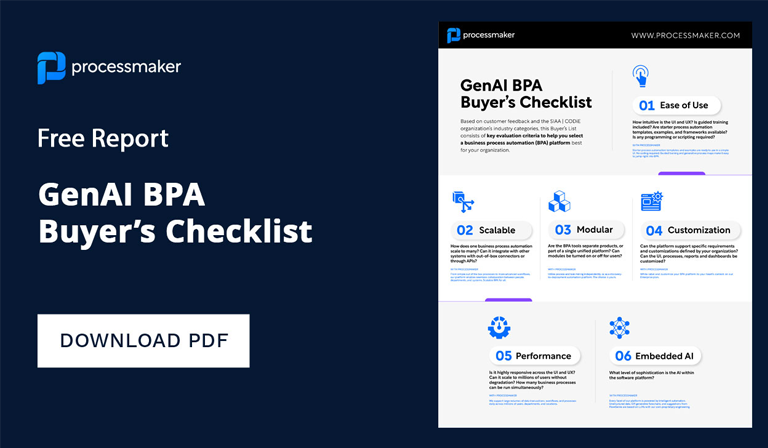Is your IT department still putting out fires for menial, repetitive tasks? Or maybe you have a few processes in place, but just need the code to build more? Consider workflow automation software to save your technical team time on the operational level. For developers, workflow automation software can be your best friend.
There are several products on the market for developers seeking to help build processes in their companies. In this article, we will discuss business processes, the potential of open-source workflow automation software, and how you — as a developer — can use this powerful technology to scale your efforts inside and outside of your IT department.
What is the difference between workflow engine, workflow automation, and BPM?
A workflow engine is a software application or tool designed to help users enforce a series of recurring tasks that make up a “business process” or a “workflow.”
So what’s the difference between workflow automation and a workflow engine, and business process management (BPM)? Workflow automation and the workflow engine are components of BPM software that enterprises use to increase organizational efficiency.
Many workflows have traditionally been manual with several steps requiring constant human intervention. In recent years, more businesses have turned to digitizing and automating these tasks in order to drive down cost, increase revenue, and accelerate productivity. A robust and effective BPM platform can produce hundreds of millions in profit for larger enterprises — all due to buying time back that was being wasted on manual, paper-based processes.
The benefit of using a workflow engine
Developers primarily use business automation workflow to reuse existing items, both within and across workflow applications. Open source workflow engines allow developers to build powerful process-driven applications that can be used for a range of cases. Developers can extend existing applications by adding workflow functionality or adding it as a layer between applications. For example, ProcessMaker powers Workflow for JotForm by serving as the approval layer between JotForm and its users.
Open source workflow engines typically provide the functionality to integrate with other apps, known as connectors, often with pre-configured functionality. This gives developers a major head start when thinking about building their next project. For more complex projects, getting workflows mapped, visualized, and easily executed through a workflow engine actually simplifies developer onboarding. The maintenance process following implementation becomes much more feasible as well.
The open-source question
In process and task management, choosing a solution with open source code is a surefire way to support open tech while taking advantage of saved time using code already built. As a developer, using pre-built code to build and layer your own projects on top allows you to create what you love with less development time. The result is faster shipping, increased organization, and cost savings associated with processes now automated at scale that weren’t before.
Not every BPM platform or workflow automation software is open source. For software engineers that need to build and automate hundreds of processes with little time to write code, open-source BPM solutions are a viable option.
Becoming process-driven
In a world where technology and business are surrounded by data, it is imperative to leverage that data to unlock your full operational potential. BPM and workflow automation software enable development teams and businesses alike to work together more efficiently, focus more on the product and IT strategy, and less on repetitive, menial tasks.
In order to become a process-driven team or enterprise, choosing the right workflow and BPM solution is crucial. The right solution will largely depend on your organization’s needs, the needs of your product/development teams, your budget, and time on hand. Understand your stakeholders’ limitations, project timelines, and long-term strategy to determine which process-driven platform is right for your enterprise.
Open source can be a great way to test drive a solution yourself or within your own smaller teams before the C-suite makes a purchase. ProcessMaker is entirely open source and built using PHP entirely on the Laravel framework. Docker containers provide extra security too. You can even bring your own SDK to code in whatever language you want! Oh, and our entirely open API allows you to work without the user interface present if you are low on time to customize.
Ready to start? Download our code on Github to start building processes of your own today!
About ProcessMaker
ProcessMaker is a low-code business process management and workflow software. ProcessMaker makes it easy for business analysts to collaborate with IT to automate complex business processes connecting people and existing company systems. Headquartered in Durham, North Carolina in the United States, ProcessMaker has a partner network spread across 35 countries on five continents. Hundreds of commercial customers, including many Fortune 100 companies, rely on ProcessMaker to digitally transform their core business processes enabling faster decision making, improved compliance, and better performance.


